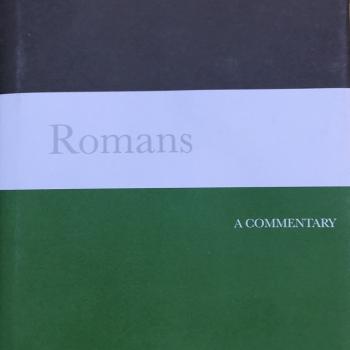The Russian invasion of Ukraine and the treat of a nuclear holocaust has sparked on a new round of speculations about the end times. Will there be a nuclear war? Is World War III about to happen? Will Russia fulfill the Gog and Magog prophecy of Ezekiel 38–39? Are we about to experience the Battle of Armageddon? Will the end of the world take place soon? Is Christ about to return? Is it the end of the world? It is especially during times like these that we need to act wisely regarding prophecy. 
Will Putin Drop Nuclear Bombs on Ukraine and Us?
First of all, threats have been made regarding the use of nuclear weapons, and people have a right to be concerned. Even so, should first ask whether a nuclear war means that it’s the end of the world. The two should not necessarily be equated.
To be sure, the Book of Revelation speaks of fire burning a third part of the earth and “Babylon” being burned down (Revelation 8:7; 17:16; 18:8-9, 19). But these images are highly symbolic. We will do well not to read too much of our own concerns about nuclear war into them.
The bottom line right now is this: we simply do not know that the world will end due to nuclear destruction. And currently at least, we do not even know that a nuclear war is inevitable in Ukraine or elsewhere. What we do know is that Jesus calls us to be morally prepared at all times. We should notice what the voice of Christ says to the seven churches in Asia Minor in Revelation 2-3. He knows their works and charges five of the seven churches to repent. May we concentrate on being a church like the one in Smyrna or Philadelphia that is commended instead of rebuked by him! So then, here are some important points to help us think soberly about the end times.
Problems and Dangers Associated with End-Time Speculations and Failed Prophecy
In no particular order, here are 5 problems and dangers related to setting dates for the Second Coming, attempting to pin-the-tail on identifying who the Anti-Christ is in the world today, and similar end-time speculations:
1. Obsession with end-time speculations can cause believers to make irrational and harmful decisions regarding their future.
For example, such things may prompt prophecy speculators to drop out of college, fail to plan for a career, refrain from marriage and having children, quit their jobs, use up the money limit on their credit cards, sell their homes, and other such things. Being misguided they think the end is too close be concerned about such things.
2. Setting dates for the “rapture” or Second Coming of Christ can ruin a person’s faith when the prediction fails.
3. Failed predictions can ruin the reputation of the person who make them.
4. Failed prophecies allegedly based on the Bible make a mockery of the Christian faith before the secular world.
5. No one has been right with a date so far! So many people have been wrong before.
I can recall off the top of my head how the “rapture” was going to take place in October of 1988 (Edgar C. Whisenant), then it was to take place on October 28, 1992 (The Hyoo-go movement), then the end was to take place in 1994 (Harold Camping), then on New Year’s Day, 2000 (the Y2K scare), then 2011 (Harold Camping again!), then 2012 (the Mayan calendar). What’s next? Whatever it will be, you don’t have to fall for it as long as you resolve to know this one thing:
Can We Know the Time of Christ’s Return?
No! Nowhere in the Scripture is a date given for the second coming of Jesus.
Matthew 24:36, Mark 13:32-33, and Acts 1:7
The voice of Jesus in the Gospels says that no one knows the day and hour of his return (Matthew 24:36; Mark 13:32–33). You would think this would be the end of the story. Unfortunately, prophecy pundits attempt to get around these words by claiming that we may not know the literal “day” or “hour” but we can know the week, month, or year!
But this, too, is misguided thinking. When the disciples asked Jesus when he would restore the kingdom of God, he told them it is “not of you” to know the “times” or “periods” of these things (Acts 1:7). For the latter word, the NASB uses the word “epochs.” The Greek words for “times” and “periods” (chronos and kairos) are not to be reduced to a “day” and “hour” (hemera and hora). (Nor do I think that hemera and hora in similar contexts should be reduced to a literal day and hour either, but that’s another matter.)
Another way of rendering the combination of times and dates this way: “It is not for you to know the various epochs of history [kairoi], nor yet how long they will last [chronoi];for these are matters of God’s own knowledge and disposal” (Acts 1:7).**
Chronos and Kairos
Both words in Acts 1:7 can refer to time periods that could last many years. In Acts 1:21 the word “time” (chronos), which is frequently understood as a duration or span of time, refers to the entire ministry of Jesus with his disciples. It can also refer to a generation of forty years (Acts 13:18), or even an entire lifetime or longer (Acts 17:30; 1 Cor 7:39; 1 Pet 4:3).
The word for “periods” (of time), which is kairos, can be understood as a decisive point, “often with a stress on the fact that it is divinely ordained.”* It can refer to a year (Rev 12:12-14; compare 12:6), a season or a few years (Lk 4:13; Acts 14:17; Gal 4:10; 6:9; Philemon 15), a former disposition or an entire lifetime (Mark 10:30; Rom 2:12; 8:18), or the entire epoch (Luke 21:24; Rom 3:25–26; 2 Cor 6:2; 1 Pet 1:10–11). In the Greek version of the Old Testament (the Septuagint/ LXX) kairos and chronos can be connected together and refer to entire eras of successive kingdoms (Dan 2:21; compare 2:31–44).
F. F. Bruce interpreted “it is not for you” in Acts 1:7 as “it does not belong to you” (Greek: ouch hymon estin; literally, “it is not of you”) to know the times and periods. This nuance reflects the idea that Christ was telling the disciples, “It is not your concern to know the times and dates.”*** If we paraphrase this for today, it could mean something like this: “It is none of your business to know the dates of future events which my Father has appointed!” It is still none of our business.
Clearly, the times and periods in Acts 1:7 mean much more than just a few days, weeks, months, or a specific year.
What, Then, Can We Know about the End Times?
Here are some things I feel confident that we can know:
First, we can know that believers have been claiming for nearly 2,000 years that humans are living in the “last days” (Acts 2:17–23; 1 Cor. 10:11; Heb. 1:2; 1 Tim. 4:1ff; 1 John 2:18; Rev. 1:1–3). Perhaps we can suggest that the “last days” started in the first century with the Christ event, and it will not end until Christ returns, whenever that might take place.
Second, Christ will come again (1 Cor. 11:26; Acts 1:11; 1 Thess 4:13–19; Tit. 2:13; Rev. 1:7). This is affirmed in the Apostle’s Creed (“he will come to judge the living and the dead”) and will doubtless continue to be affirmed until fulfilled.
Third, there will be a resurrection from the dead (John 5:23f; 1 Cor. 15:12–58).
Fourth, there will be a final judgment (Matt. 25:13–45; Acts 17:31; Rom 2:6–16; 2 Cor 5:10; Rev. 19–20)
Conclusion
Our business until these events take place is not to set dates for when such things will take place. Rather, we are to be doing the Lord’s work in whichever way he has called us to do so. Notice after Acts 1:7 is Acts 1:8! If we are to be prepared for that time, then the way to prepare is not by speculating about the end but by making sure that we are always morally and spiritually ready, whether for our own death or the second coming, whichever might come first. Notice the moral preparation involved in 1 Thes. 5:1-11; Rom. 13:11-14; Rev. 1–3.
In essence, this is what I normally say regarding the second coming—we should live our lives morally as though Christ is returning tonight. But we should plan as though Christ is not returning for another thousand years.
Notes
*Gerhard Delling, in Theological Dictionary of the New Testament, abridged; ed. Gerhard Kittel and G. Friedrich, trans. Geoffrey Bromiley (Grand Rapids, Mich.: Eerdmans, 1985), 389.
** John Marsh, The Fulness of Time (London: Nisbet, 1952), 119.
*** F. F. Bruce, The Acts of the Apostles (London: Tyndale, 1951), 70.
For more reasons against end-times madness, see my book, 99 Reasons Why No One Knows When Christ Will Return (IVP)
Image: Statue of Liberty Mushroom Cloud Atomic Bomb via pixabay.com












